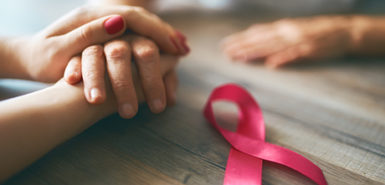
Need another reason to improve your diet and start exercising? Doing so could help ward off cancer, a new study finds.
“Keep in mind that every lifestyle factor counts and it is never too late to adopt a healthy lifestyle,” said study co-author Bernard Srour, of the French National Institute of Health and Medical Research.
Eating healthful foods, engaging in physical activity and avoiding alcohol is tied to lower overall cancer risk, as well as lower breast and prostate cancer risks, Srour’s team found.
Our Take
The use of alcohol—especially excessive use—is a risk factor in developing cancer, said Judy Smith, MD, former chief of the Spectrum Health Cancer Center. Even moderate use of alcohol, defined as one drink a day or more, is shown to increase your cancer risk.
“We know that alcohol use impacts your risk of getting particular cancers such as breast, colon, liver, esophagus and head and neck,” Dr. Smith said. “The greater the use, the higher the risk.”
Dr. Smith said the cancer center’s goal is to try to get the news out that substances such as alcohol and tobacco put people at greater risk for developing cancer. Using either doesn’t necessarily mean you’ll get cancer.
“We really don’t completely understand why some people develop cancer and others don’t,” she said. “Many factors make people predisposed to get cancer. The important thing is to understand your risk and to be open and honest with your physician. They are there to help you.”
Researchers analyzed data from more than 41,000 adults in France, age 40 and older, who had never been diagnosed with cancer. Between May 2009 and January 2017, nearly 1,500 cases of cancer were diagnosed in the group.
But those who fared best cancer-wise adhered more closely to dietary guidelines developed by the World Cancer Research Fund and the American Institute for Cancer Research, the researchers said.
A 1-point increase on the guidelines’ score of healthy eating was associated with a 12 percent decrease in overall cancer risk, a 14 percent decrease in breast cancer risk, and a 12 percent decrease in prostate cancer risk.
The study was published in the journal Cancer Research.
The study authors concluded that the “synergistic contribution” of a healthy diet was more significant than any single dietary recommendation in reducing cancer risk.
For example, antioxidants from fruits and vegetables may counteract some of the cancer risks posed by red meat and processed meat. Similarly, by lowering blood pressure, exercise could partly offset the effects of high-salt foods.
“This emphasizes the role of an overall healthy lifestyle—nutrition and physical activity and alcohol avoidance—in cancer prevention,” Srour said in a journal news release.
The researchers said the recommendation to avoid alcohol most likely contributed to that diet’s role in reducing cancer risk.
“In its last report, the WCRF stated that there is now strong, convincing evidence that alcohol consumption increases the risks of oropharyngeal, esophagus, liver, colorectal and postmenopausal breast cancers,” said study co-author Mathilde Touvier, also of the French Institute of Health and Medical Research and the University of Paris.
It appears alcohol is linked with stomach and premenopausal breast cancers as well, Touvier added.
 /a>
/a>
 /a>
/a>
 /a>
/a>